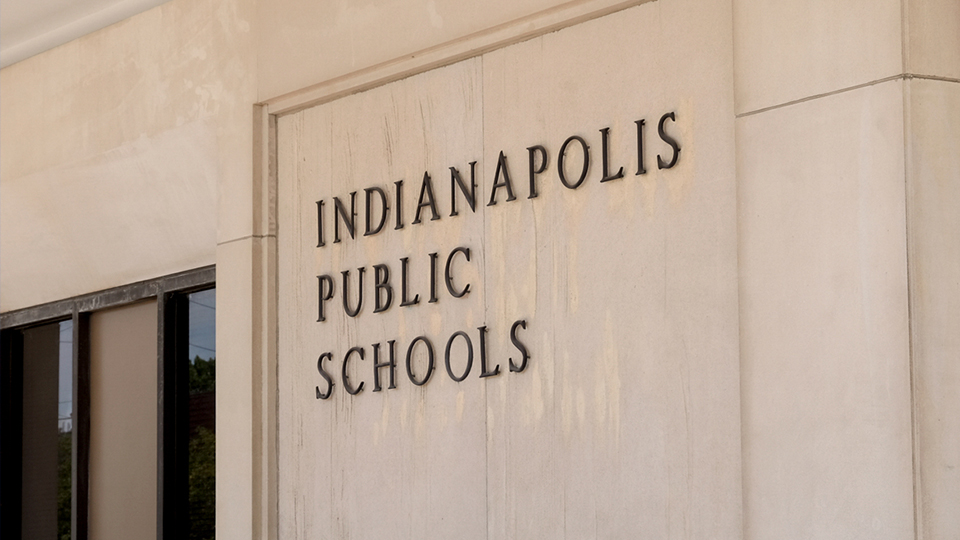IPS offers more referendum funding for Innovation charters
Subscriber Benefit
As a subscriber you can listen to articles at work, in the car, or while you work out. Subscribe Now
A revised revenue-sharing plan from Indianapolis Public Schools to increase the amount of funding affiliated charter schools would receive from a potential tax hike is still inadequate, charter friendly groups say.
District officials unveiled the new plan during an IPS board meeting Thursday, when they announced the district would share $9.7 million annually with 18 charters in the district’s Innovation Network, instead of the $6.4 million annual figure that officials initially proposed.
The new figures would provide a little over $1,000 from the ballot measure for each charter school student, compared to roughly $1,900 for each traditional public school student.
“We have constantly continued to work with our Innovation partners to try and talk about what we feel will work best for them as we go through the process,” said board president Venita Moore at Thursday’s meeting, referring to charter schools in the Innovation Network.
Yet influential groups that support charters say the bigger number from IPS still treats charters unfairly. Independent charters, which aren’t a part of the Innovation Network, would still not receive any potential referendum funding due to concerns about accountability and oversight.
IPS has yet to finalize the ballot measure, which would support more than $400 million in operating expenses — although the district hopes to place the measure on the ballot in May.
The tension between the district and the charter community could make the tax increase a tougher sell than the 2018 referendum ballot questions, the last time IPS sought to raise property taxes for district costs. That year, voters approved a $272 million tax increase for the district.
IPS says additional tax revenue is crucial for Rebuilding Stronger, a sweeping district overhaul that aims to improve academic offerings, keep teacher pay competitive, and reconfigure grades. Rebuilding Stronger also offers a way for the district to compete with charters, which have grown as IPS enrollment has declined in recent years.
The IPS board has already advanced a separate $410 million ballot question for capital costs to put on the May ballot.
But charter school advocates and families say that the updated proposal from Thursday still falls short of equitable funding.
“The newest iteration of the operating referendum funds students in direct-run IPS schools at twice the rate as students in Innovation Network schools,” said Brandon Brown, CEO of the Mind Trust. “Students in independent charter schools still receive nothing. Because of this, the operating referendum is still completely unacceptable,”
Charter-friendly groups, meanwhile, have ramped up efforts in recent weeks to sway public opinion against the ballot measure in its current form. They stress that the proposal as it stands does not adequately account for racial equity.
“There’s a plan out there right now that would give more money to white students in some public schools at the expense of black students in schools like mine that also need resources,” one student at Believe Circle City High School (a charter school) says in a radio ad paid for by EmpowerED Families, a group that advocates for underserved communities that was launched with funding from the Mind Trust.
On average, both independent and Innovation charters within IPS boundaries have a higher percentage of Black students and students receiving free or reduced-price lunch than the district. The district, however, has a higher percentage of Latino students.
District officials, however, counter that the goal of the ballot measure they’re working on is to help fund Rebuilding Stronger, and not necessarily to level the playing field for charter schools.
The district also pays for a variety of in-kind services to its Innovation charters. In the 2021-22 school year, the district spent more than $40 million to support those charters, according to chief financial officer Weston Young.
Another prominent group that supports charters, Stand for Children Indiana, has so far withheld support from the ballot measure. By contrast, in 2018, the organization contributed more than $200,000 in support of the tax increases for schools, said Justin Ohlemiller, the group’s executive director.
The updated figures for Innovation schools are a step in the right direction, but still create a sizable funding gap between traditional public school and charter school students, Ohlemiller said.
Some charter-friendly groups have noted that the 2018 tax increases are generating more revenue than originally anticipated, and have questioned the need for another ballot measure to raise taxes when the 2018 tax hike will be in effect for another four years.
But IPS officials have noted that the excess revenues from the successful 2018 ballot measures have allowed the district to share that funding with its Innovation Network charters.
The deadline for the two ballot measures to be certified and put on the May ballot is Feb. 17.
The ballot measure that IPS is considering would increase the tax rate from 19 cents per $100 of assessed value to 25 cents, a rate officials estimate would generate an additional $51.7 million annually.
In a separate potential win for charter schools, state lawmakers introduced a new bill this week that would require districts to share a portion of any extra tax revenue for school operating costs that voters approve through ballot measures. But that provision would not apply to the ballot measure IPS is working on.
Amelia Pak-Harvey covers Indianapolis and Marion County schools for Chalkbeat Indiana. Contact Amelia at apak-harvey@chalkbeat.org.
